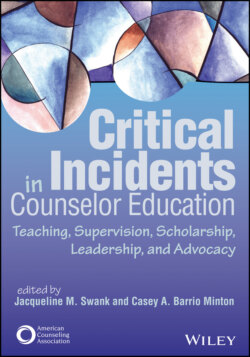Читать книгу Critical Incidents in Counselor Education - Группа авторов - Страница 71
Rethinking Multicultural Counseling
ОглавлениеMulticultural counseling courses are typically taught from a group-of-the-week perspective, in which each week a new cultural community is the focus of learning. This approach can lead to generalization and reinforce bias by treating cultural groups as monoliths. Instead, Vontress (2009) encouraged a conceptual approach that honors the distinctness of individuals while attending to key concepts such as degree of acculturation, collectivism and individualism, emic versus etic diagnosis, and the need for autoplastic versus alloplastic interventions.
I encourage faculty members teaching multicultural counseling to promote dialogue and authentic intergroup contact in their courses. The great Brazilian educator Paulo Freire (1970) argued for a problem-posing education that relies on discussion to disrupt educational hierarchies and promote critical thinking skills. Such an approach may not seem natural, as students have become accustomed to being lectured to throughout their education. Professors must create conditions to foster dialogue by eliminating lecture and allowing classes to be guided by questions. I set this tone at the outset of my multicultural classes through an activity that entails lyrical analysis of a punk rock song (see Hipolito-Delgado, 2016); this activity also serves as a metaphor for unpacking assumptions and aids in practicing critical questioning. Although this will not eliminate bias in the classroom, it will create expectations and help students develop the skills needed to process incidents when they occur.
Authentic intergroup contact is also vital for diminishing bias (DeRicco & Sciarra, 2005) and increasing cultural competence (Hipolito-Delgado et al., 2011). To this end, Hipolito-Delgado et al. (2011, 2013) argued for a cultural immersion project, the Multicultural Action Project (MAP), as a method to promote intergroup contact and increase the cultural competence of counseling students. For the project to be meaningful, extended contact between groups is required, marginalized groups should not be expected to educate more privileged parties, and counseling students should provide services with and on behalf of the marginalized group. The MAP would be useful for aiding Anne in better understanding the experiences of communities of color. It would also provide Bell with the depth and breadth of experience she desires; it might also challenge her to engage with a cultural community with which she has less experience.
